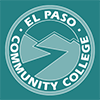El Paso Community College is located in El Paso, Texas, USA. It is an influential community college. The following is a detailed introduction:
History and Development
The college was established in 1972 by a vote of community members and a board of seven trustees was established. The college was built after the board of directors requested financial assistance from the state government.
Campus and Facilities
The college has five campuses, namely Mission Del Paso Campus, Northwest Campus, Rio Grande Campus, Transmountain Campus and Valle Verde Campus. Each campus has an administrative office that provides services to students and arranges meetings between students and counselors.
Teaching and Courses
Rich majors: The college offers more than 130 learning programs. Students can choose to pursue an associate degree or various certificates. The majors cover a variety of fields such as liberal arts, science, engineering, business, and medicine, such as business management, marketing, nursing, medical technology, and computer science.
Diverse teaching methods: In addition to regular face-to-face courses, the college also provides online education programs, including online courses, radio/television courses, hybrid courses, video conferencing courses, and Virtual Texas College, etc., to meet the learning needs of different students.
Faculty
The college has a teacher-student ratio of 20:1. Teachers can pay better attention to the learning situation of each student and provide students with more targeted guidance and help.
Student situation
Number of students: The college has a total of students 28,819 people, among which the number of international students is also considerable. The International Student Office will provide services for international students from admission application to transfer or graduation to meet their diverse needs.
Student Clubs: The college has many active student clubs, such as Psychology Club, EPCC Gay and Straight Alliance, Respiratory Care Club, Sapphire Warrior Club, Sign Language Club, Social Science Club, Hispanic Professional Engineers Association, Sol Voice, Student American Dental Assistant Association, Student American Dental Hygiene Association, Student Communication Association Network, Student Free Enterprise Association and Student Nurses Association, etc. Students can participate in club activities according to their interests to enrich campus life.
Admission Requirements
Students are required to submit official high school, GED or college transcripts to the Admissions and Registration Department.
If you have attended other colleges or universities, your credits will be evaluated to determine whether you can transfer.
Freshmen are required to take a placement evaluation test before admission.
Financial Aid
The college provides students with various forms of financial aid, including grants, loans, work-study programs, emergency loans, scholarships, exemptions / Common grants include Federal Pell Grant, Academic Competitiveness Grant, Federal Supplemental Educational Opportunity Grant, Texas Public Education Grant, etc.
-

Harvard University
-

Massachusetts Institute of Technology
-

South University
-

University of West Georgia
-

Stanford University
-

Northwest Nazarene University
-

Hawaii Pacific University
-

Shorter University
-

Nova Southeastern University
-

Saint Leo University
-

Mesoamerican University
-

Istmo University
-

Mariano Galvez University of Guatemala
-

Regional University of Guatemala
-

Galileo University
-

Francisco Marroquín University
-

Rafael Landívar University
-

University of the Valley of Guatemala
-

University of San Carlos of Guatemala
-

Technological Institute of Tlaxcala Plateau
-

Golfo University
-

Technological University of South Sonora
-

Technological University of Huejotzingo
-

Tizimín Institute of Technology
-

Chilpancingo Institute of Technology

